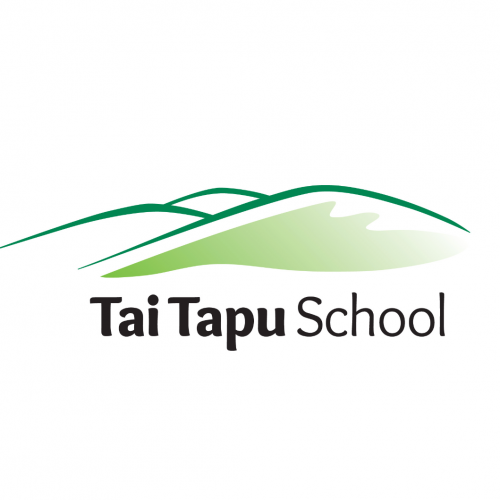
Whakanuia Tōu Āhua Ake! Celebrating Being Us!
Bernadette May — December 31, 2019
At Tai Tapu School our aim is to celebrate what makes all tamariki unique – such as talents, interests, appearance, disability, culture, beliefs, race, gender or sexuality – and to build learning environments where everyone is welcome, safe and free from bullying.
The learning culture of we have at Tai Tapu School comes from our school vision:
Making a difference - self, others and environment...
Our values come from our vision:
Manaaki - Respect for all
Māia - Courage in all that we do
Tipu - Growth, always striving for personal best
Hononga - Connection, we are connected to our whānau, our whakapapa, our cultural heritage and the land around us.
We want our learning community to respect, celebrate difference, and promote positive relationships. This makes it difficult for bullying behaviour to thrive or be tolerated. To achieve this, it needs everyone – school staff, students, trustees, parents, whānau and communities – working together.
Inclusive Education
Under the Education and Training Act 2020, our board is required to ensure every student at Tai Tapu School can attain their highest possible standard in educational achievement, and that we cater for and are inclusive of students with differing needs. We do this by ensuring our school:
- is a physically and emotionally safe environment for all students and staff (NELP Priority 1)
- implements the relevant student rights under the Education and Training Act, the New Zealand Bill of Rights Act 1990, and the Human Rights Act 1993
- takes all reasonable steps to eliminate racism, stigma, bullying, and any other forms of discrimination within education and our school community
- reflects Aotearoa New Zealand's cultural diversity (Education and Training Act, s.133)
- gives effect to te Tiriti o Waitangi
- maintains an inclusive learning community and culture that allows students to express their diverse identities.
Learners at the centre
Learners and their family/whānau are at the centre of Tai Tapu School. We empower our students to be engaged in their learning, and to experience success. This includes students who identify as LGBTQIA+, are disabled, have learning support needs, are neurodiverse, or come from diverse ethnic communities (NELP Priority 1).
We collaborate with our school community to understand the aspirations of learners and their family/whānau, and identify and respond to learner strengths, progress, and needs.
Incidents of racism, discrimination, or bullying are addressed through our harassment, bullying, and/or concerns and complaints policies.
We work with our students and their families/whānau to ensure our school environment and programmes reflect their identities and keep students engaged in school. This includes:
- identifying any practical concerns and support required
- discussing any concerns about student wellbeing and safety
- discussing student privacy, preferred level of information sharing, and obtaining consent before publishing student information
- using the preferred name and pronouns of students
- identifying students and groups of students who are not achieving or are at risk of not achieving, and developing strategies to meet their needs.
At Tai Tapu School we recognise the diverse learning needs of our students, and the need for barrier-free access to education. We work with students and their families/whānau to identify and address any barriers that may stop students from accessing, participating in, or remaining engaged in education. This includes Māori and Pasifika learners, disabled learners, and those with learning support needs (NELP Priority 3).
Cultural and religious diversity
We aim to instil in our students an appreciation of the importance of diversity, cultural knowledge, identity, and the official languages of Aotearoa New Zealand. We respect and honour te Tiriti o Waitangi and give effect to it in all aspects of school life.
We recognise and value the different cultures represented in our school community, and prioritise inclusivity by:
- supporting teachers to competently teach diverse learners, and make appropriate changes to teaching approaches if necessary
- being sensitive to all religious beliefs and belief systems
- supporting students and families whose first language is not English, including English language support for eligible students
- celebrating festivals and significant holidays from a range of cultures
- running our own cultural events and activities.
We respect the place of Ngā Tangata o Moana-Nui-a-Kiwa/Pasifika peoples and cultures, and acknowledge the diversity of Pasifika learners and their families. At Tai Tapu School, we support engagement and excellent outcomes for Pacific learners by engaging with the Ministry of Education's Action Plan for Pacific Education, and integrating diverse Pacific cultural values, histories, experiences, customs, and languages into curriculum areas, where appropriate.
We foster Pacific culture by supporting our Pasifika culture group, marking Pacific language weeks, and holding fono evenings. Fono evenings are an opportunity to engage with our school community and local Pacific families and communities to discuss educational needs and opportunities.
Sexuality and gender diversity
Schools have a responsibility to be inclusive learning environments for LGBTQIA+ students, including gender diverse students (NELP Priority 1). Inclusive learning environments aim to keep our school safe and to protect the mental and physical health and wellbeing of students. We take the views, beliefs, and customs of our community into consideration, while ensuring that the health and wellbeing of our students takes priority.
Our school creates an inclusive learning environment for our LGBTQIA+ students by:
- teaching about respectful and inclusive behaviour and languages as part of our ongoing delivery of our vision and values, and the curriculum
- dealing with any issues that may arise around sexuality or gender identity through our Supporting Student Wellbeing policy
- addressing harassment, bullying, or discrimination through our harassment, bullying, and/or concerns and complaints policies
- upholding the expectations of The Code | Ngā Tikanga Matatika by respecting the diversity of student identities, promoting the wellbeing of learners, and protecting them from harm.



